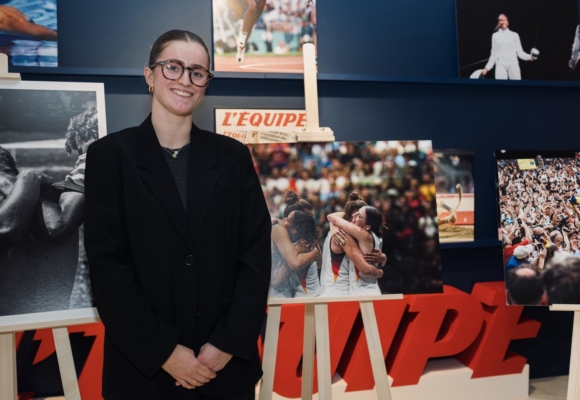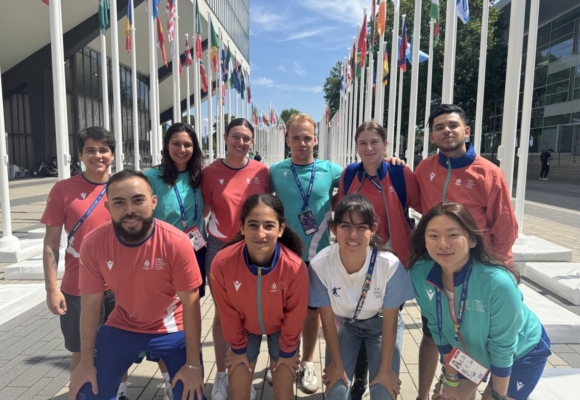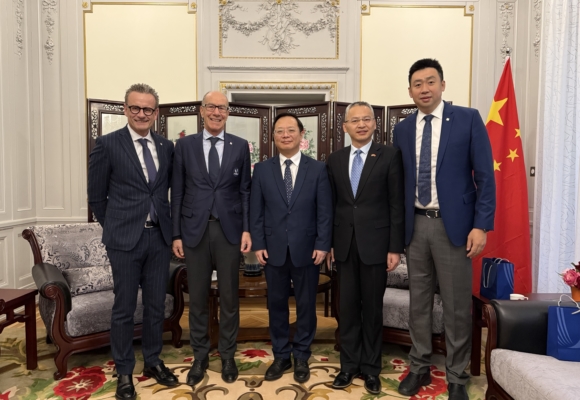Being a leader outside the field of play requires executing a career transition game plan, the Senior VP of the IOC Athlete Career Programme tells attendees at FISU’s Student-Athlete Seminar series
TAIPEI SUMMER UNIVERSIADE ATHLETES’ VILLAGE – Every athlete will one day have to retire from university or professional competition and a vast majority will also need to find another job once they leave the competitive arena.
Even for a university athlete who has the experience and education that campus life provides, this transition can be a daunting prospect. Most elite athletes retire with little to no money in their bank account. If they do, it often runs out quick. Even for professional athletes who sign multi-million dollar contracts, career transition is hardly ever a honeymoon.
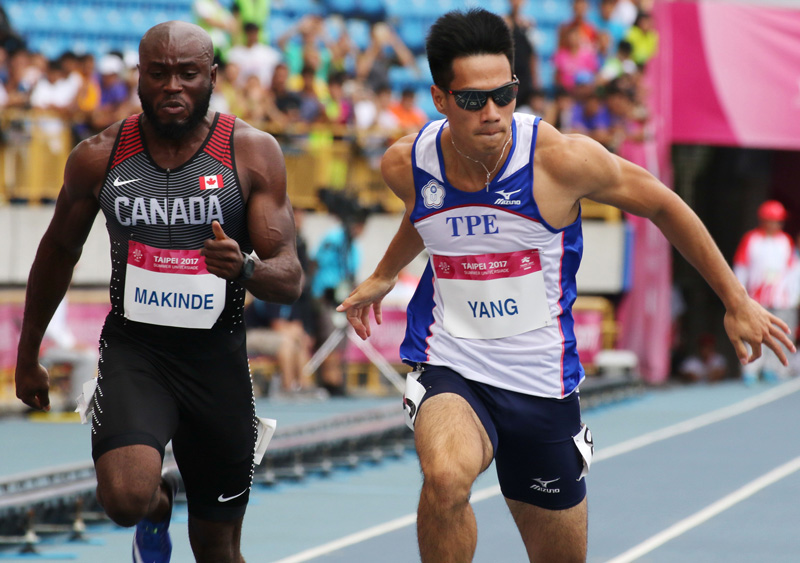 Canada’s Makinde and TPE’s CHun-Han Yang in athletics day 1 action, 100 m heats.
Canada’s Makinde and TPE’s CHun-Han Yang in athletics day 1 action, 100 m heats.
“Before working with Olympic athletes, I worked with the NBA and the NFL. When the programme began, the majority of these players were bankrupt, unemployed and depressed within three years of their retirment,” Adecco’s Senior Vice President for the IOC Athlete Career Programme Patrick Glennon said.
“The average age of an elite athlete in most sports is 25-30,” Glennon added. “Then you retire. You have no money. And if you do, it can run out quick. It’s over, and you’ve got to have a game plan for life after sport.”
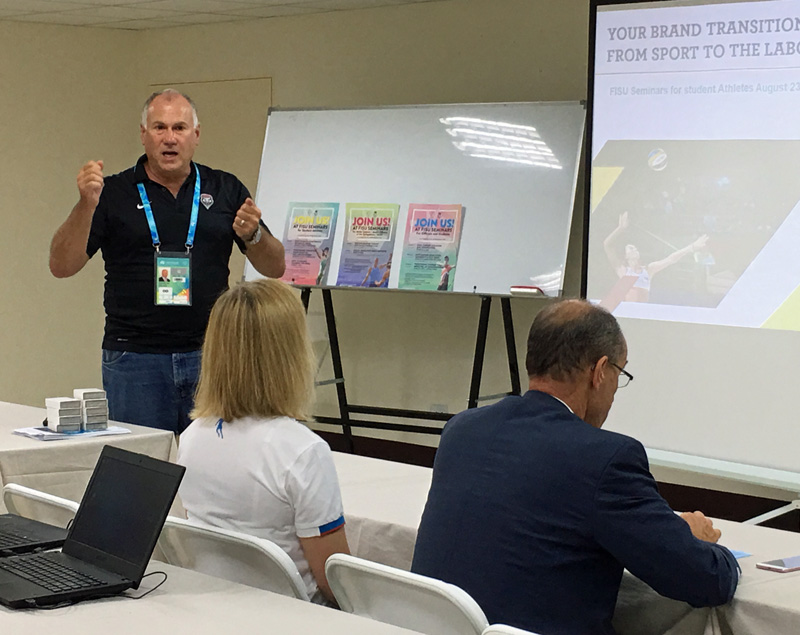 Before focusing his work on assisting Olympians on making successful career transitions, Glennon worked with NBA and NFL athletes
Before focusing his work on assisting Olympians on making successful career transitions, Glennon worked with NBA and NFL athletes
If that’s the rub, here’s the balm: In the USA, 70 percent of C-level executive competed or participated in organised sports. Skills athletes acquire are invaluable, particularly when it comes to sizing up the competition – or competitive analysis as the business world calls it.
Nobody is better than an athlete that knowing what talents one has and then supplementing this with the skills and tactics necessary to beat worthy opponents. This is a vital aptitude, both in the sports arena and the corporate arena.
The marketable assets of an athlete do not stop there, said the HR expert. Many top performers are charismatic, know how to work in a team environment, are resilient and determined and dedicated, and have traveled the world.
It’s also one’s university years and in events like the Universiade that are often the influential experiences on an athlete’s life.
 Attendees from the seminar, which focused on how athletes can brand their transition from sport to the labour market
Attendees from the seminar, which focused on how athletes can brand their transition from sport to the labour market
Most hiring managers make the safe bet by hiring someone similar to themselves – and athletes often do not fit a similar career profile of the average hiring manager.
Glennon said this adds to the challenge of athletes starting their professional careers. “People hire with what they know,” Glennon said. “They hire the safe candidate.”
This comes at a corporate cost. “When all companies hire all the same type of people, you’re all the same,” Glennon said. “When you’re all the same, how do you win; how do you beat your competition; how can you be an industry leader?”
Sporting federations like FISU, though, give athletes opportunities at their events to acquire new knowledge and build up their network of influencers to become better, more employable, leaders. These are valuable assets to overcoming the stigma of being different for risk-averse employers.
“When you stop looking backwards and instead start looking forward, that’s when you can compete to win,” Glennon said. “We teach athletes how to win.”
